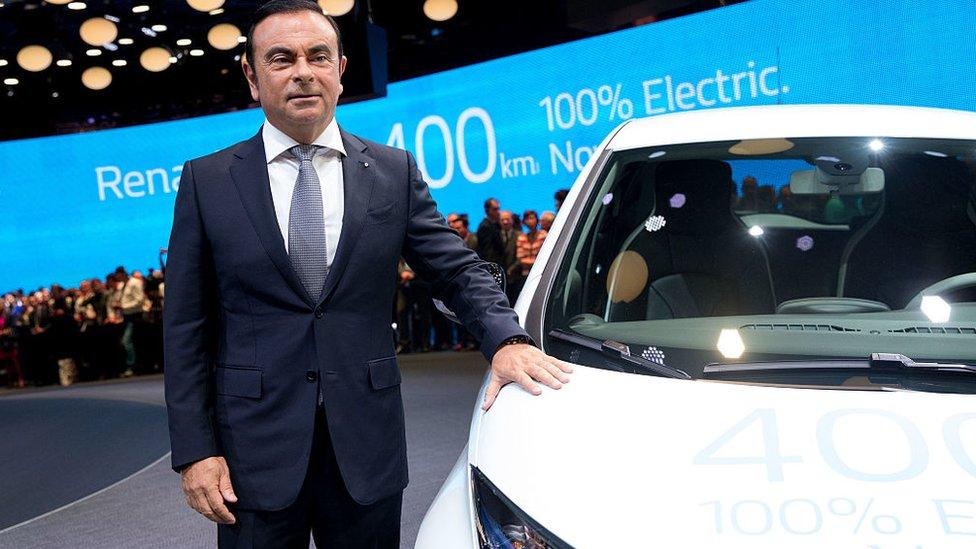France set to remove Carlos Ghosn from Renault after arrest
- Published
- comments
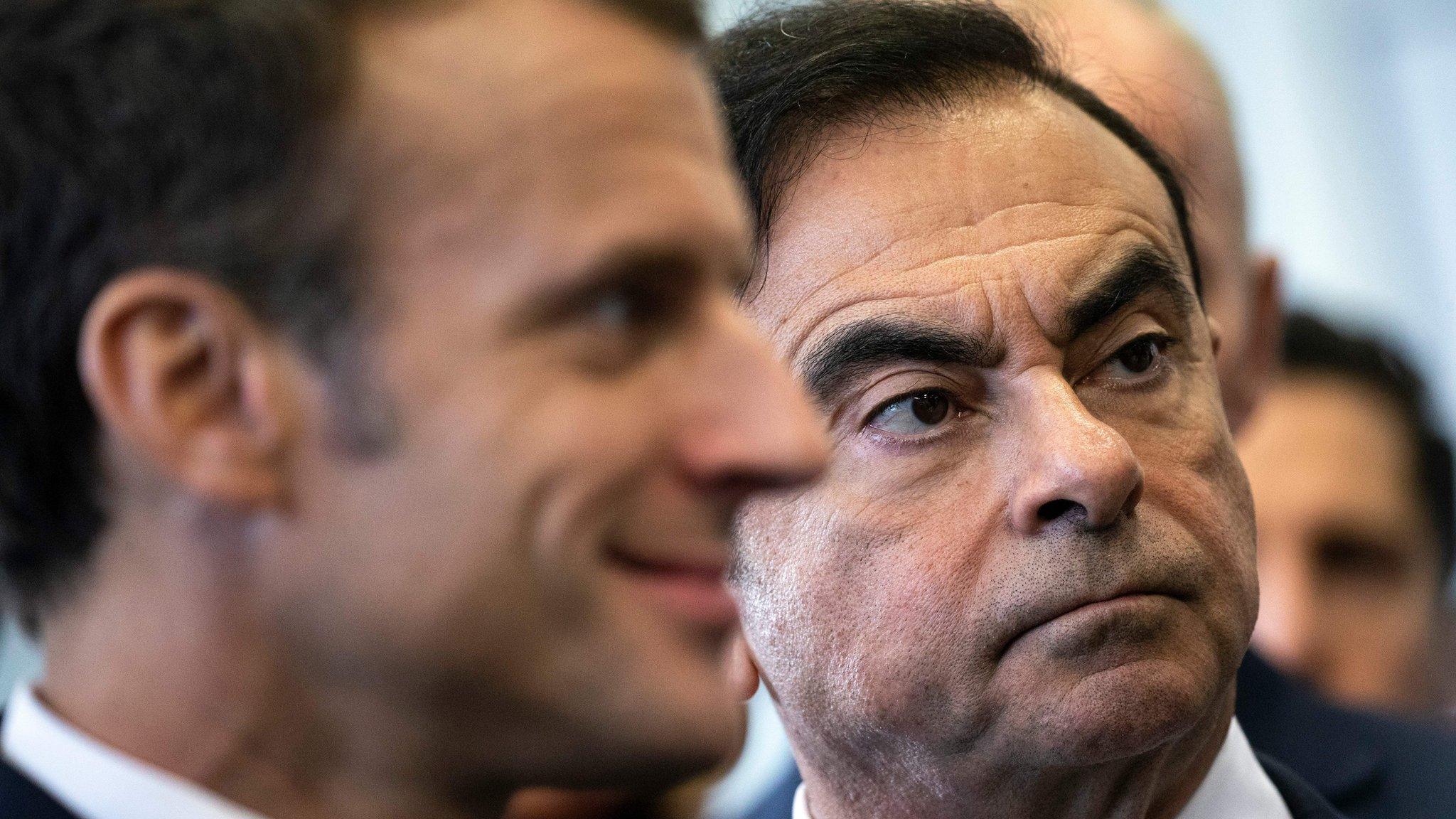
French president Emmanuel Macron and Carlos Ghosn visit the Renault factory in Maubeuge, northeastern France, earlier this month
Carlos Ghosn should not remain in charge of Renault following his arrest in Japan over claims of "misconduct", the French finance minister has said.
Bruno Le Maire said he was "no longer in a position" to lead the carmaker in which the French state has a 15% stake.
The Renault board confirmed it would meet on Tuesday to discuss temporarily replacing Mr Ghosn as chief executive.
The minister hinted that directors could ask Renault chief operating officer Thierry Bollore to step up.
Mr Bollore is already in charge of many day-to-day activities at the firm and the company's latest statement makes it clear work at the company is continuing as normal.
"We need to have an interim management structure in place as quickly as possible," Mr Le Maire said.
Renault's partnership with Nissan remained in the interests of both France and Japan and of both companies, he added.
On Monday, Japanese prosecutors said Mr Ghosn had under-reported his income from running Nissan by 5bn yen ($44.4m; £34.5m) over five years.
Japanese broadcaster NHK also reported that the company had spent millions buying luxury homes for Mr Ghosn.
Mr Ghosn is also chairman of both Nissan and Mitsubishi Motors and leads an alliance of the three carmakers.
Nissan and Mitsubishi are both preparing to remove him from his posts. Shares in Nissan fell 5.5% and Mitsubishi slid 6.8% in Tokyo, while Renault shed 2.5% after dropping 8% on Monday.
Mitsubishi Motors chief executive Osamu Masuko said the alliance would be difficult to manage without Mr Ghosn. Nissan has a 34% controlling stake in the smaller Japanese carmaker.
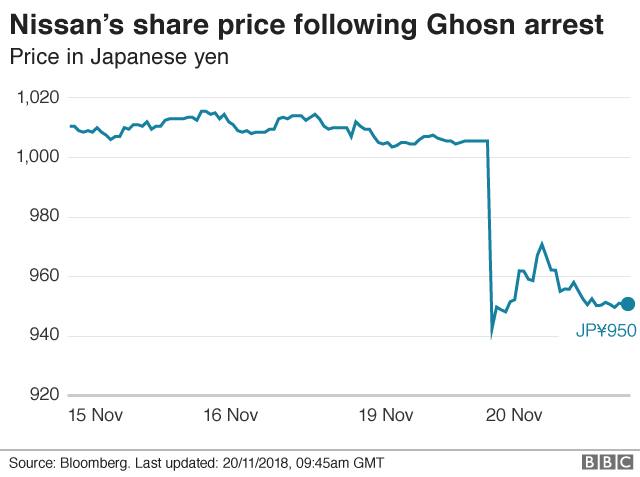
What has happened so far?
In a press conference on Monday, Nissan said an internal investigation prompted by a whistleblower had revealed "significant acts of misconduct" including "personal use of company assets".
The announcement sent shockwaves through the automotive industry where Mr Ghosn, 64, is seen as a titan, responsible for a dramatic turnaround at Nissan in the early 2000s.
Nissan chief executive Hiroto Saikawa said "too much authority was given to one person in terms of governance".
"I have to say that this is a dark side of the Ghosn era which lasted for a long time," he said, adding he was still debating whether Mr Ghosn was "a charismatic figure or a tyrant".
What are the accusations?
Prosecutors later said in a statement that Mr Ghosn and senior executive Greg Kelly had conspired to understate Mr Ghosn's compensation, starting in 2010.
Mr Ghosn is accused of filing annual securities reports containing fake statements, which could mean up to 10 years in prison, or a fine of 10m yen, or both.
From 2010, Japanese firms have been required to disclose the salaries of executives who earn more than 100m yen.
Japanese prosecutors also said they had already raided Nissan's Yokohama headquarters, near Tokyo, as part of their investigation.
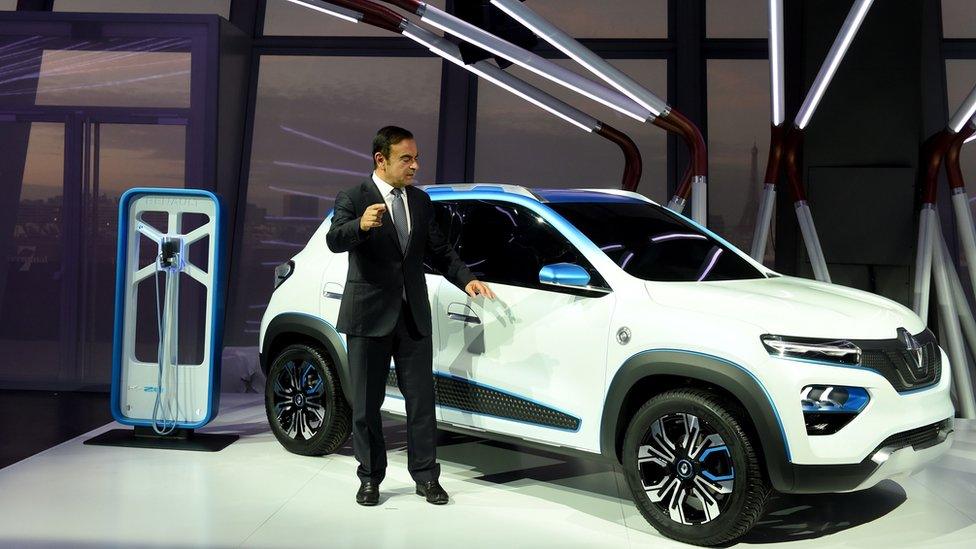
Carlos Ghosn unveils the Renault K-ZE electric car aimed at the Chinese market last month
BBC Tokyo correspondent Rupert Wingfield-Hayes said the charges against Mr Ghosn had come to light because of a new law that came into effect in Japan in June, aimed at improving corporate governance and uncovering corporate misdeeds.
He said under Japanese law, Mr Ghosn can be kept in custody for up to 23 days without charge.
No further details of his alleged misconduct have been given. But some specifics were being reported by Japanese media.
Broadcaster NHK reported, citing unnamed sources, that Nissan provided Mr Ghosn with houses in four countries without legitimate business justifications.
Millions of dollars had been spent to purchase and renovate the homes in Brazil, Lebanon, France and the Netherlands, NHK said.
There has been no comment from Mr Ghosn or Mr Kelly.
How will this affect the Alliance?
As misconduct revelations emerged, the future of the car alliance led by Mr Ghosn remained unclear.
He has been credited with turning around both Nissan and Renault before becoming the linchpin of the alliance the companies later formed.
The Renault-Nissan-Mitsubishi Alliance sold 10.61 million passenger cars and light commercial vehicles in 2017, making it the number-one automotive group worldwide.
Nissan chief executive Mr Saikawa insisted the partnership "will not be affected by this event".
Janet Lewis, Macquarie's head of industrials research in Asia, said it was "in the interests of all three companies to get through this as there aren't a lot of alternatives for them, especially in light of the investments they have made together so far".

Five notable Japan Inc scandals
The Olympus affair: Michael Woodford blew the whistle on a vast accounting fraud at the camera firm
Toshiba's irregular accounting: the industrial group revealed it had overstated operating profit by nearly $1.2bn
Takata's deadly airbags: faulty airbags produced by the firm led to injuries and deaths around the world
Kobe Steel data scandal: the country's third-largest steelmaker falsified data on quality of some of its goods
Nissan emissions failure: the carmaker admitted some emissions and tests "deviated from the prescribed testing environment".

- Published20 November 2018
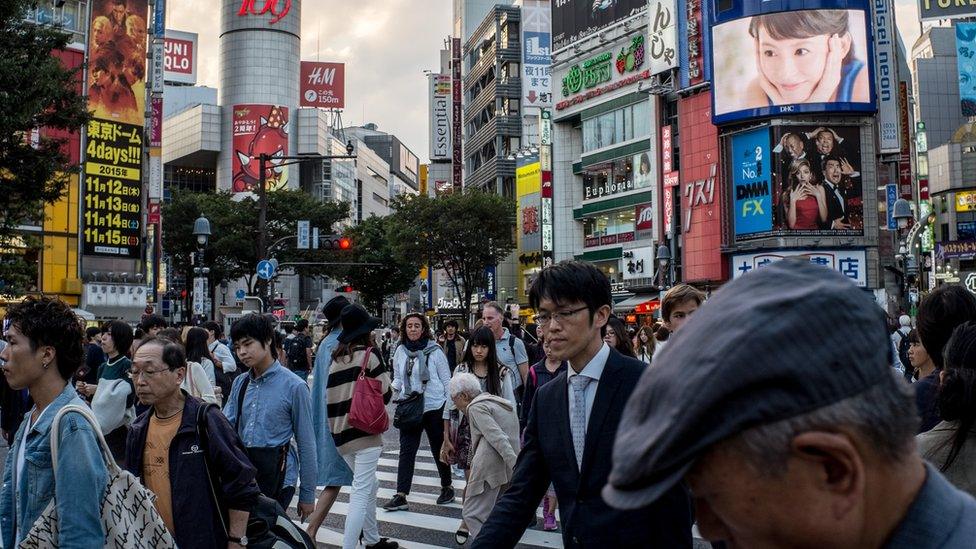
- Published19 November 2018
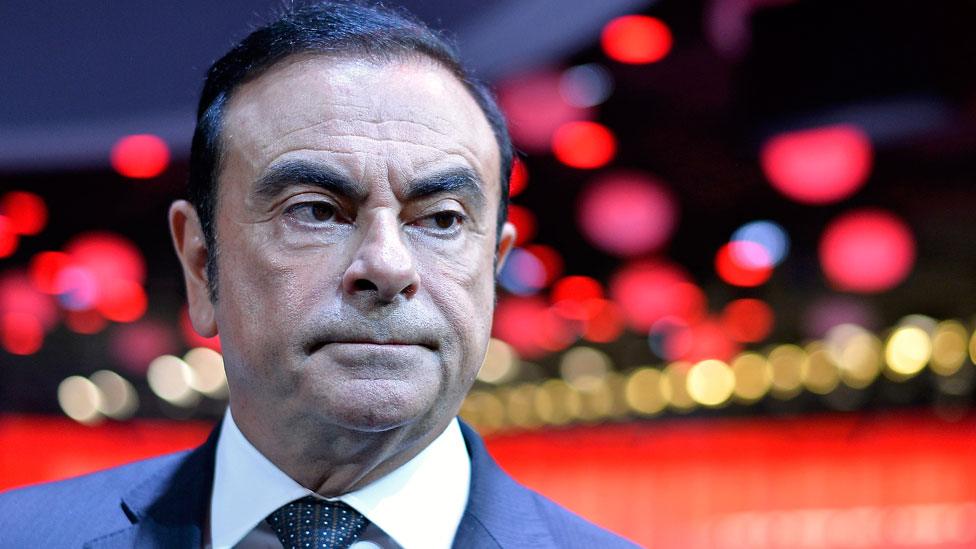
- Published1 July 2018
